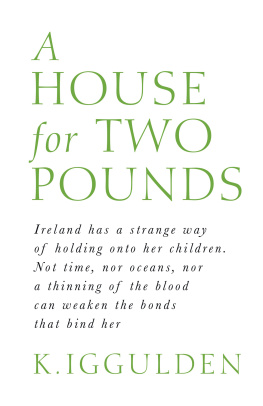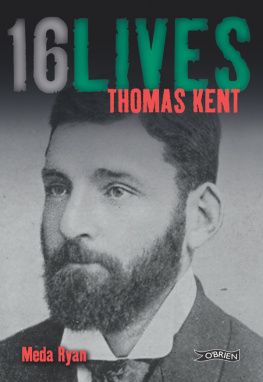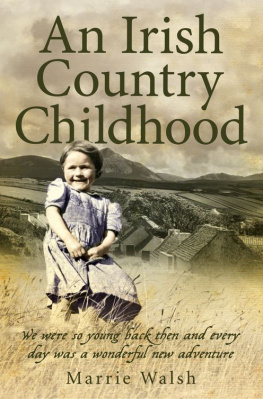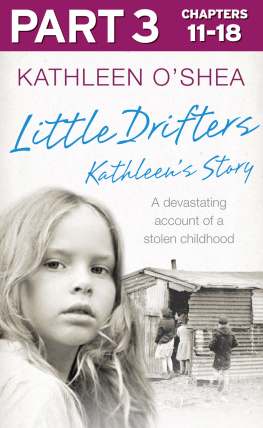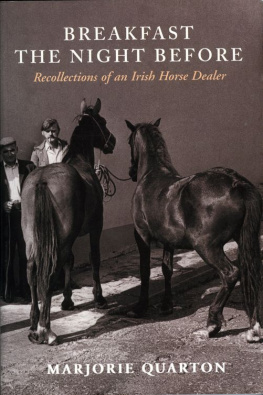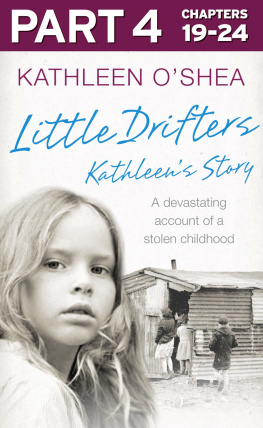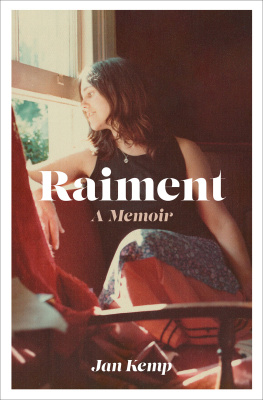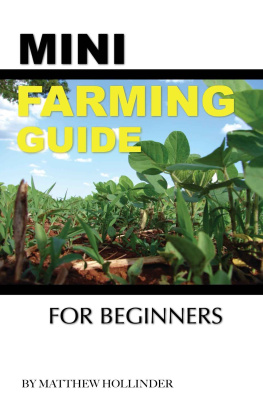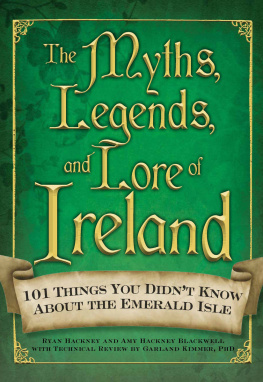K. Iggulden
(NE KATHLEEN MORAN)
A HOUSE FOR TWO POUNDS

PENGUIN BOOKS
UK | USA | Canada | Ireland | Australia
India | New Zealand | South Africa
Penguin Books is part of the Penguin Random House group of companies whose addresses can be found at global.penguinrandomhouse.com.

First published 2019
Copyright K. Iggulden, 2019
The moral right of the author has been asserted
ISBN: 978-1-405-94372-7
This ebook is copyright material and must not be copied, reproduced, transferred, distributed, leased, licensed or publicly performed or used in any way except as specifically permitted in writing by the publishers, as allowed under the terms and conditions under which it was purchased or as strictly permitted by applicable copyright law. Any unauthorized distribution or use of this text may be a direct infringement of the authors and publishers rights and those responsible may be liable in law accordingly.
To the people and places of my childhood
Introduction
A love of Ireland and the Irish is what shines through this little book. It looks back to families and villages around Cork in what might have been a vanished age, but in her hands is just around the corner, across the fields. My mothers childhood in the 1930s involved two or three generations her parents, her brother and sisters, all those around them. The children and grandchildren of those people are still with us indeed, I am one. I think that love is what she wanted me to understand. She saw her people as intensely polite, decent and innocent, with humour and music always ready. She saw them as poets, and poetry as the highest art. She admired them, no, she adored them. How many of us can say that of the people we knew in our youth?
On reading these stories, I am left with a quiet reverence for those who went before for their laughter and songs, for their faith and dislike of cold authority, their quiet resilience. Yes, there is tragedy and loss, but what remains, as I close the book, is peace and a memory of kindness. These were good people and surprisingly funny ones. Their stories are worth telling because all lives are, because the past is a place our parents and grandparents met, not some strange valley beyond our understanding. I stood by the house my grandfather built just last summer, looking out over the fields. The door was sticking and the day was cold, but its all just a step away.
The creation of these chapters is a story in itself. Though she was born Kathleen Moran, I knew my mother as Kathy Iggulden, teacher of English and history in north London, lover of poetry and song, and as fierce an advocate for her children as it is possible to be. Identity is a strange and shifting thing. She wrote these interlocking pieces for years, changing some things, adding others or taking them out, deciding what could at last be revealed and what kept secret. She struggled for a long time with revealing her past in Ireland, though she came to terms with it in the end and was at ease. It is a happy childhood for the most part. Her love and trust in people can be felt on every page which is how I remember her.
When you are growing up, almost anything can become normal. For me, that was coming home from school to find some stranger in my house who needed a room for a few days or a few months. My mother would get talking to someone on a train or in a shop and theyd tell her all their troubles. They seemed to sense her compassion and we never had a year without someone in the spare room, sorting their life out. Those were the informal ones, the lost chickens my mother would find. More formally, a succession of young women came to stay with us to have a baby they could not keep, then went home, to Ireland, Malta, Sweden or Japan, as soon as the child had been born and adopted. My father used to say the neighbours looked on him in astonishment at the parade of pregnant ladies going in and out of ours.
I understand a little better now that my mother felt it was not enough just to have a warm house, a loving husband and children. She felt she had to do something for those who had not been given as much, in the most practical way possible. She was always involved in some good work and sent money all around the world. Nor was that enough. Unusually, she tried to live her help. If it was counselling a friend whose marriage was in trouble, or hiding a woman whose violent husband was searching for her, that was what she did. If there was ever a lack of certainty in her, I did not see it. Right was right. My father put up with a great deal of strangeness, but he was so amazed at his luck in finding her that he hardly ever complained.
On one occasion, when she answered the phone to a heavy breather, she demanded to know his reasons for wasting her time in such a way. After a torrent of questions, the man at the other end began rather sheepishly to answer. She kept him on the phone for an hour after that until he had assured her he would mend his ways and turn his life around.
She trusted people and expected the best of them. I used to think that was perfectly normal, but the wonderful thing was how often they stepped up and tried to meet her expectations. She was, for example, the worst parker of cars it has ever been my privilege to witness. She would abandon them like a ship offshore so far from the kerb that the entire road would come to a halt in astonishment. Time and time again, her preferred method was to call a passing young man, hand him the keys and ask him to park it for her. I used to plead with her not to do it, saying that someone would surely steal the car. Yet no one ever did. Pleased and proud to be asked, they parked it neatly to a man and went on.
My mother loved men. She understood instinctively that they were the weaker sex, but that it was vital never to let them know you knew. Do you realise? Women are in charge! she told her sister, in the way of sharing an astonishing secret. I asked her once why she, a highly intelligent woman, had to ask Dad to wire a plug. She said it made him happy to do things like that for her and why would she take that away from him?
She was also the worst cook I have ever known, though the reason for that is in this book and will become clear. When I was a young boy, I thought fudge was something that could break like glass and be sucked. Lasagne was a sort of thick biscuit and the kitchen itself was a dangerous place, where things exploded and ricocheted off the ceiling. In the end, my father took over the cooking completely. He said he had the highest charcoal content in his blood of any man in England and just could not take it any more.
It was a happy childhood, because my English father and Irish mother adored each other and made our home a place of laughter. I know I delighted in making my mother laugh, more than just about anything.
She passed on a love of words: of poetry and history. She loved the English verses of Tennyson, and she loved the Irish verses of Yeats just about equally, as far as I could tell. Neither was allowed to overshadow the other and both could make her gasp and shake her head at the perfection of a line. She kept half a dozen chickens in a suburban garage in Eastcote, Middlesex, because she missed them from her childhood.
Her faith, too, was a thing of wonder. I sometimes thought it was odd that we had to sing whenever we passed a Catholic church: Praise to the Holiest in the height, And in the depth be praise. I know

